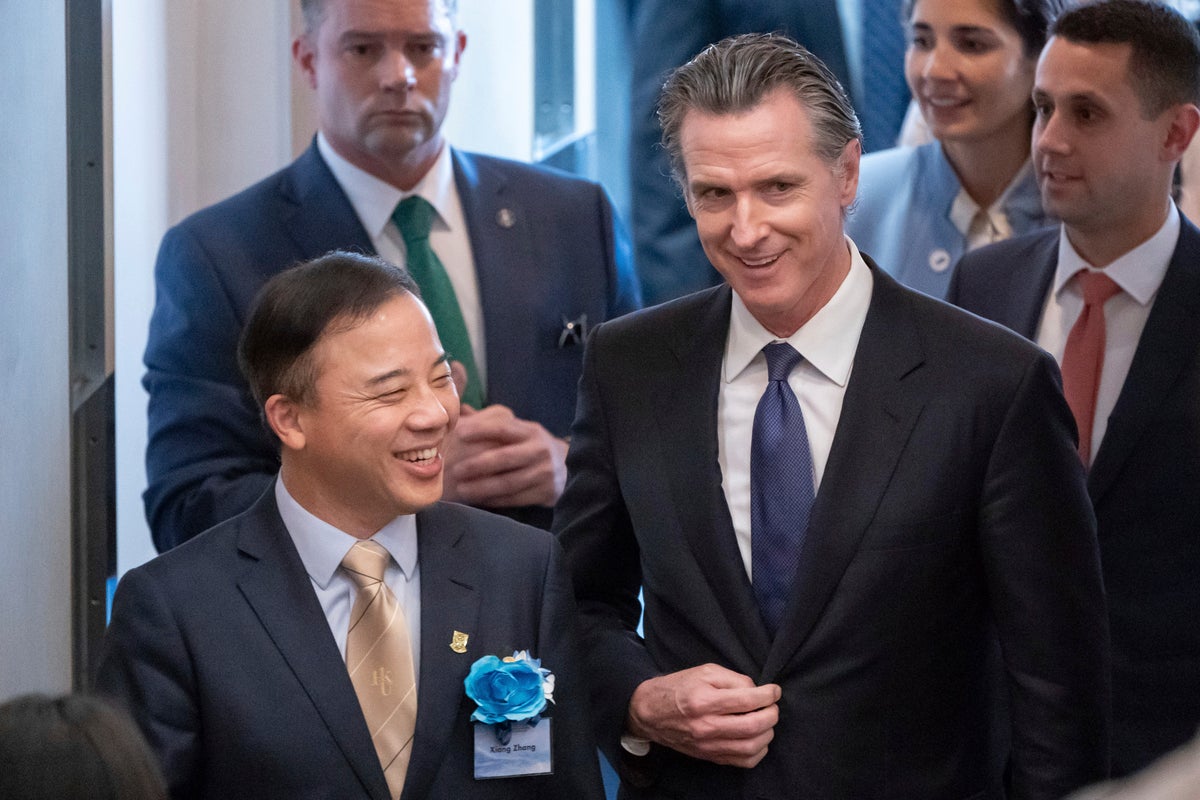
The Governor of California assured Monday during his week-long trip to China that his state will always be a partner on climate issues no matter how the U.S. presidential election turns out next year.
Democrat Gavin Newsom's visit comes as U.S.-Chinese relations witnessed a sharp deterioration in recent years due to trade disputes, U.S. support for self-governing Taiwan, and human rights concerns, among other contentious issues.
Attempting to reinforce his state's role as a global leader on climate change, Newsom began his visit with a climate-themed discussion at The University of Hong Kong.
He told the audience they “can rely on California,” while addressing claims that the United States is not a reliable ally.
“I want you to know, regardless of what happens nationally, sub-nationally, you have a partner in the state of California,” he said.
Climate remains one area where collaboration is seen as possible and necessary. Both countries appear to have fully re-engaged in the run-up to the next U.N. climate change conference, which opens Nov. 30 in Dubai.
Newsom said China and the U.S. have long-standing partnerships on the issue of climate change that he wanted to build upon.
But his trip to China has drawn concerns from some 60 advocacy groups and non-governmental organizations. They expressed their disappointment in a joint statement issued on Friday over the governor’s decision to “explicitly turn away from engaging on critical human rights issues.”
Asked if the only way to make progress on climate matters with China is not to mention human rights issues, Newsom denied the tradeoff saying, “we can do many things at once.”
After his Hong Kong trip, he will head to Beijing, Shanghai and the provinces of Guangdong and Jiangsu.
He will visit the first Chinese city to deploy an all-electric bus fleet, tour an offshore wind facility and see Tesla’s Shanghai Gigafactory. He will sign agreements with leaders of various Chinese provinces to set mutual commitments on a host of climate goals.
Newsom’s agenda also includes conversations on “strengthening cultural ties and combating xenophobia,” and promoting economic development and tourism.
Governors of California, which has an economy larger than most countries, have a long history of climate collaboration with China. Democrat Jerry Brown and Republican Arnold Schwarzenegger also traveled there to swap knowledge on reducing air pollution and emissions, and since leaving office, Brown has launched the California-China Climate Institute at the University of California, Berkeley.







